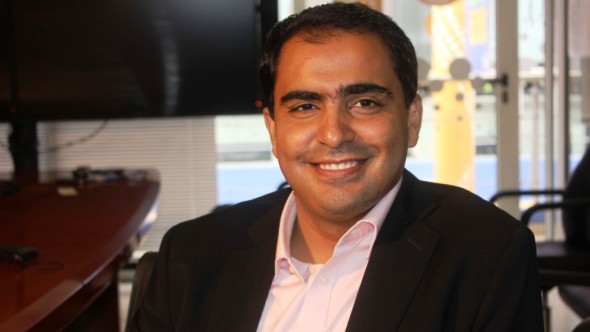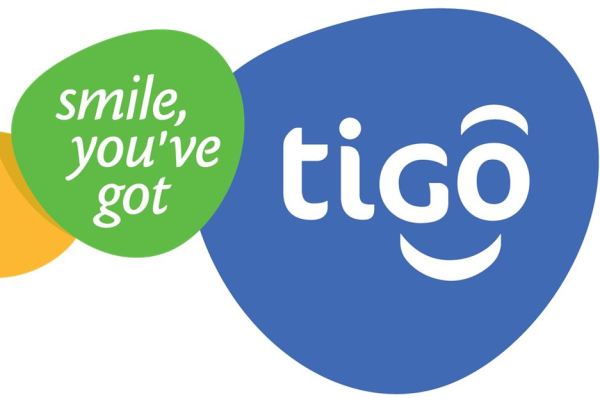Ghana Telecom Sector: Overview of Tigo | Millicom Ghana Limited
Adil El Youssefi gives an overview of Tigo, one of the top telecom companies in Ghana. Tigo is part of Millicom International Cellular, a leading international developer and operator of cellular telephone services worldwide, primarily in emerging markets, operating across Latin America and Africa.
Interview with Adil El Youssefi, CEO of Tigo (Millicom Ghana Limited)

There are 6 players in the telecom sector, the prices have come down, the service and penetration is large, in fact it is on average one of the largest penetrations in the world. That is fantastic news for the Minister for Communications, but on the other hand for you as a company, you are facing heavy competition. What is your view of the sector?
What we try to do is to bring in value-added services or innovative services that people are prepared to pay a premium for. This way we increase our top line and at the same time we try to manage our cost base so that we are a lean company with little waste.
Well we are also just as happy as the Minister for Communications. As you probably know Tigo and Millicom Ghana were the first companies to launch mobile services in Ghana. We launched mobile services here 20 years ago. So we are also very happy about the achievements that the sector has made in and for this country. However as you also said there are a lot of challenges for each operator and the industry is very crowded. There are profitability challenges; price levels are one of the lowest if not the lowest in Africa. So it is a challenge every day to continue to make sure that we give our consumers what they want but in a profitable way for our shareholders.
That said, what do you do to survive?
Well you have to be at the top of your game. You have to beat the competition, you have to convince customers to use you over your competitors and you need to serve them in a profitable way. So what we try to do is to bring in value-added services or innovative services that people are prepared to pay a premium for. This way we increase our top line and at the same time we try to manage our cost base so that we are a lean company with little waste. This allows us to deliver a margin that is used to invest again in the business. It requires much more discipline and focus to be able to survive in a difficult environment.
In terms of your revenue and where you are placed in the sector, at the moment you are number 3.
Yes, that is correct, the official figures place us in 3rd position in the market, we were in 2nd position two years ago but we were overtaken. This is a challenge for us but we have been embarking on our transformation program over the last year and it has yielded good results; we have been gaining market shares over the last 6 months, we have increased our customer base and increased our revenues so things are looking up for us.
How do you intend to increase your revenue? I believe there is about 86% penetration. People do not only have one sim, they can have several, for example they can have a mobile, an Ipad, a modem… What is your strategy in terms of services and of the growth of the company? Are you moving towards data?
The growth of this company will come from three things. The first is data, this is true across the world, and Ghana is not different in this sense. Data will be one of the main growth drivers for us in the next few years. The second driver for growth is new services. We are happy in this area because we believe we are leading and setting the agenda in this area. We were the first to introduce insurance services via mobile in Ghana. We were the first to introduce mobile financial services in West Africa as a whole and in Ghana in particular. So we have high hopes that the new services that we have introduced and those that we are going to introduce are going to provide us with good growth. The final aspect is what we call here ‘fixing the basics’. If we make sure that we have the basics right, in terms of understanding our customers, giving them good products, a good brand and services and having the right people inside the company, this will give us organic growth.
Ghana is a particular case; you mentioned financial services, when we interviewed the financial sector we found out that there are only 2 million accounts in Ghana, and some people have several accounts, which means that the informal sector is huge. A way to reach everyone is mobile, sometimes people may not have a wallet on them but they do have a mobile. What are you doing for this sector?

You are right; there is huge opportunity in this area. The number of unbanked in Ghana and Africa as a whole is very large. I am happy to say that we are setting the agenda in this area and leading the way with mobile financial services. We were the first to introduce this service here in Ghana. We have the highest number of transactions and the highest value of transactions made through our mobile service and we are investing heavily in terms of resources, customer education and technology to drive this industry in Ghana. We have branches across the country and promoters out on the street pushing the service. With the Millicom group we have, as a whole, been very successful in this sector; we are the leaders in Africa in Rwanda and Tanzania, we are the leaders in Latin America in Paraguay. This is something we know how to do, and so we are leading here in Ghana and we have high hopes for this service.
Can you give us an example of the services that you provide?
It is very simple; we provide services to companies so that they can pay their employees. I receive part of my salary on my phone for example so that when I go out to a restaurant I can tip the waiter through Tigo Cash rather than with cash for example. We provide services that allow you to send your money from here to your loved ones in Tamale. We provide a service to truck drivers or taxi drivers who have large sums of money with them every day, so that instead of going to the bank and waiting in line they can just go to a Tigo agent and give him the money who in exchange will send them electronic money on their phones. It basically makes people’s lives easier through this new means of exchanging cash.
It also helps the country to grow. It brings development to the country. In this sense, how would you say you are contributing to the economic development of the country?
Well I think the contribution of the telecom service in general no longer needs to be proven on the economic development front. We are the second provider of internet services in the country. No one can function without internet these days, be it for business or pleasure. So this is a direct way that we are giving Ghanaians access to the world through our data service. Also our basic voice services allow people to communicate, to conduct their businesses, to live their lives in the way that they would like to. All this contributes directly to the economy. Almost 30% of our revenue goes to the government in the form of taxes or duties, etc… so that is a direct contribution to the Ghanaian economy. We have more than 1000 direct employees and more than 40,000 people who make a living indirectly through the existence of our company.
How do you treat the business segment, looking at the local companies, etc.? What does it represent for you?
Here in Ghana, the business sector is actually very developed compared to other countries in Africa. Within the Millicom group, we are, for example, the operator that has the highest number of business clients. Basically these people want basic services, to be able to communicate with their clients either with voice or data services but they also sometimes want specialised services. I gave the example of mobile financial services; we have some companies that pay their salaries through our mobile financial service. Some companies use our tailored solutions that allow them to check that their staff are at work, or that they have completed a specific task, or have visited a specific client, etc. So we have a sort of sales force model on mobile tailored to businesses.
What is the name of this service?
We call it Tigo Business. It is a simple product. Tigo Business allows you to pay your salaries, to track whether your sales people have visited prospects or things like that.
What links do you have with the international community? How does Tigo Ghana interact internationally?

We have several partnerships with several agencies. As you know the World Bank is very active in Africa so we have several partnerships with the World Bank where we do projects to increase coverage in some areas. We do this with various agencies where we go to put up sites in areas that are not economically viable but we do it because there is a big need. We also have partnerships with the Cherie Blair Foundation and with some other global NGOs where we do projects with our mobile financial services or our data packages that are tailored to women for example. We have several partnerships that allow us to tap that community. At the same time we are part of the multinational Millicom, which is part of another multinational group which means that we have access to global players and if they want to come to Ghana to do business here, obviously their first point of contact will be us.
What are the main strengths of Tigo in Ghana, what makes you stand out from the competition?
I think one of our strengths is that we work hard to understand our customers. We don’t have the biggest network in the country, we don’t have the cheapest prices in the country, nor do we have the largest data offer in the country but we do offer the products that the people want to pay a reasonable price for. This is why people perceive us as the best value for money proposition in the market. For example we have unlimited data plans, nobody else offers these unlimited plans. With us you don’t have to worry about the fact that you can’t access the internet in the middle of the day because you have unlimited access. This is a small example of how we are trying to offer what the customer wants and not necessarily what is just good for us.
What are the main challenges?
Well I think we touched upon the main challenges earlier. The sector is very crowded, the prices are the lowest in the sub region if not the whole of Africa which puts a strain on our profitability and makes it difficult to convince our shareholders and our parent companies to give us funding to invest further in the sector. As I said we need to be at the top of our game and even in this very difficult environment show some profits and good margins and growth opportunities so that we can invest for the future. The second challenge that is specific to Ghana at the moment is the quality of service. We have a lot of challenges with road construction because the economy is booming and infrastructure is being built but while this happens sometimes our own infrastructure that is buried under ground has been damaged. So this poses a challenge on the quality of service that we provide to our customers.
How do you view the sector in the future, currently there are 6 international players, do you see mergers happening?
Obviously we would prefer to just have 2 or 3 players in the sector, as that seems to be the reasonable number that we find in other countries. However it is a good thing for the consumers as they are getting very low prices and good choice but it is not healthy for the industry. As I have said on many occasions, too much of a good thing sometimes is a bad thing because the industry cannot grow or invest. We have been talking about consolidation in Ghana for several years; I don’t know whether it will happen one day. Millicom likes being in Ghana, we were the first to come to this country 20 years ago. We have very big plans and very high hopes and expectations for the market here in Ghana and if there is an opportunity to consolidate then we shall look into it and will actually be more of an active player than a passive player.

To conclude I would like to know how you view the company and also Ghana in the next 3 years? What are your hopes and dreams?
I hope that Ghana continues to be a very peaceful country, one that sets the example in the region as it has been doing in the last few decades, and I am sure that this will be the case. The economy is really booming and there is a lot of investment coming in to the country to a lot of sectors. The government, the regulators and the civil society are really trying to solve the country’s issues and take it to the next level so I am very optimistic about the country’s prospects. Here at Millicom Ghana we are trying to ride this wave of growth, trying to make sure that we also invest for the future and are ready to benefit from this growth through the three areas that we discussed, by fixing the basics for our business and pushing data and new services that people want so that we can support this growth.
What are your fears for the future for the country?
The sector is very competitive, so our concern is whether we can do all of this in a profitable way. Are we going to be able to do all these things and mobilise the funds and convince our shareholders that we need to invest? That is still a challenge that we need to face and as we said infrastructure and stability is also a concern. It is something that we are addressing but it can be a hindrance in this plan.